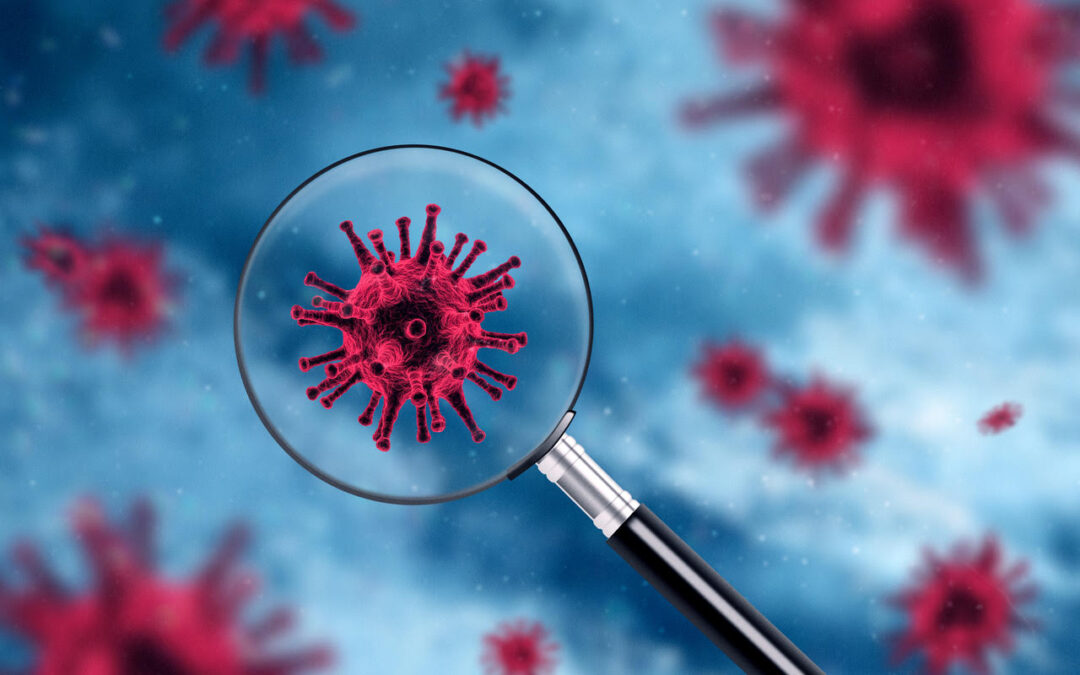Apollo’s Arrow: the profound and enduring impact of coronavirus on the way we live, by Nicholas A. Christakis (Little Brown Spark, 2020)
During the coronavirus pandemic that has devastated the planet in the past year, we have become familiar with many acronyms and initialisms related to the disease. The name itself, COVID-19, identifies a type of virus with spike proteins shaped like a crown (“corona” in Greek), that was originally identified in late 2019. This virus is also known as SARS-2, shorthand for the second incidence of a virus that causes “severe acute respiratory syndrome”. SARS-1 had emerged in 2003 but fizzled out quickly.
A blizzard of other initialisms has permeated the media as the pandemic progressed. Epidemiologists measured the R (reproduction number) to determine infectiousness and the CFR (case fatality rate) to assess the lethality of the disease. NPIs (non-pharmaceutical interventions), e.g. masking, hand washing, physical distancing, testing, tracing and quarantining of infected and exposed persons, are the standard anti-epidemic strategies recommended for and in some cases required of the general public. Items of PPE (personal protective equipment) e.g. masks and face shields, gowns and gloves, were much in demand by hospital personnel as their patient loads multiplied. We soon learned that ICUs (intensive care units) were being overwhelmed, risking a collapse of the medical system in many countries. And in the US the government responded with the trillion-dollar CARES Act (Coronavirus Aid, Relief and Economic Security).
Apollo’s Arrow explicates all of the above jargon. The author is a physician and sociologist who directs the Human Nature Lab at Yale University. Here he presents a comprehensive, well-researched account of the COVID-19 pandemic, including 30 pages of bibliographic citations. Inevitably, the details are already six months out of date, but Christakis has furnished an excellent baseline analysis of the medical and societal ramifications of the disease. The title refers to the myth of the Greek god who rained down a vengeful plague on the Trojans with his bow. Perhaps this new pandemic is a heavenly revenge for mankind’s encroachment on and despoliation of the natural world.
Intermingled with the narrative of our contemporary crisis are apt literary quotations and colourful descriptions of other plagues in human history, from the Black Death of the Middle Ages to the Spanish flu of 1918, and more recently to polio and HIV/AIDS (oops, another initialism). It all makes for a rich stew of information.
The book contains many sociological insights. For example, Christakis attributes the abject failure of the United States to manage the disease to “intellectual atrophy” on the part of many citizens.
- There has been a progressive denigration of science [which] has come to be seen by too many as serving political ends….Rather than engage difficult topics head-on using our best efforts at objective research, many people have found it easier to ignore inconvenient truths and suppress the scientific inquiry that might reveal them….The desire for simplicity and certainty during a time of complexity, uncertainty and danger can lead to lies and false reassurance by politicians and hucksters. (pp. 289-93)
On the other hand, medical personnel and other essential workers have been lionized during this crisis. Once this pathogen is brought under control through the efforts of physicians and scientists, public attitudes may change. “Perhaps after the dust settles from the pandemic, and humanity moves on to other threats that require scientific understanding, such as climate change, the voice of experts might be given more weight.” (p. 293)
What is the endgame for COVID-19? Christakis predicts that it will take perhaps three or four years before this virus becomes endemic, like influenza or the common cold, less widespread and less lethal than it has been for the past year. At the time of writing he didn’t know that vaccines would already be in worldwide distribution by the end of 2020. However he provides a primer on the genetic composition of viruses and their antidotes, plus an explanation of how herd immunity helps virus mutations become more benign over time.
I appreciated the author’s hopeful coda at the end of the book:
- For all the suffering it has caused, the COVID-19 pandemic also showed people new possibilities. The cessation of movement resulted in clean air and a reduction in carbon emissions on par with what is required (albeit in a more sustained way) to address climate change. Banding together to implement the various NPIs fostered a recognition of the importance of collective will and helped set the stage for political activism to address other long-standing problems in our society, from economic inequality to racial injustice to health-care inadequacies.The ability of the government to spend vast sums of money in the blink of an eye gave a palpable demonstration of the tremendous economic power it has to address a threat deemed important enough. (p. 323)
Apollo’s Arrow is an enjoyable read and a valuable reference, not only on COVID-19, but on the science of viruses and their impact on society throughout history.


